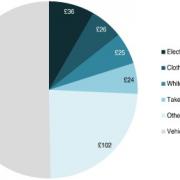The prevailing approach to mitigating climate change discussed in national and international policy groups is to envisage a technological solution: government support for innovation will release new forms of low carbon technology that will solve climate change while producing economic growth. This is politically compelling but, as made clear on this site, is extremely unlikely – after decades of searching, we haven’t found any low-carbon sources of energy that operate at sufficient scale to replace our enthusiastic consumption of fossil fuels.
The alternative view of mitigation presented in this site is that it is quite possible to live well with less energy. The high levels of energy consumed in rich countries today are a historical accident that occurred because we were unaware of the adverse effects of burning fossil fuels. Had we known, we could have developed differently. This choice does not require new technologies, but a change of mind-set. However, although this change is possible for individuals, insufficiently few are likely to take it to have sufficient effect on global emissions.
Climate mitigation thus requires navigating a path between blind techno-optimism and naïve optimism about behaviour, and the economic models in use to guide decisions are ill-equipped to find this path. Models used to help guide decisions on large asset purchasing in the energy industry have little if any capacity for examining the behavioural choices of demand reduction. Furthermore, most economic models are designed for exploring marginal changes from the present. The scale of mitigation and its urgency does not require marginal but radical change, and the choices indicated by marginal analysis may be small steps in the wrong direction compared to the larger changes required.
This overview sets a large agenda for re-evaluating how economic models are used to guide policy choices.


